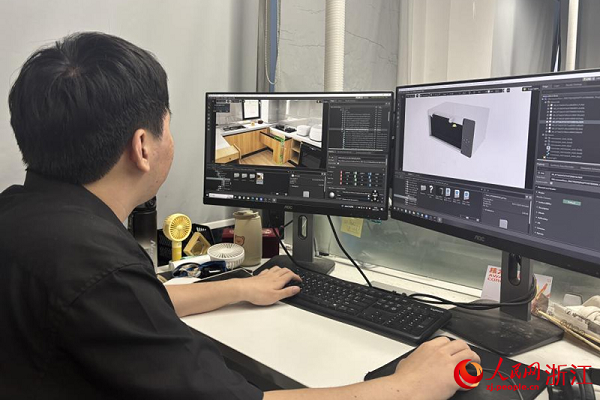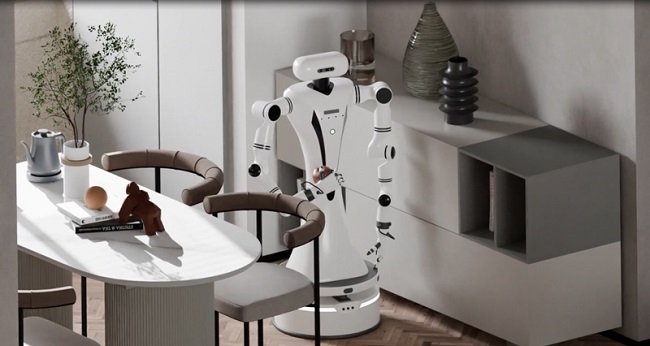Robots attend virtual school in Hangzhou
In a virtual kitchen, a humanoid robot named Xiaotao opens the fridge, grabs cereal and milk, and prepares breakfast. This is a part of training session in a digital school built for robots.
Developed by Manycore Tech Inc. in Hangzhou, east China's Zhejiang Province, the SpatialVerse platform offers a virtual training ground for robots to master real-world interactions. With over 362 million 3D models simulating diverse spatial environments, robots learn critical tasks like opening a cabinet with just the right force or placing objects accurately into containers.

Zhou Chuhan sets up a virtual space for future training. (Wang Liwei/People's Daily Online)
"These tasks may seem simple for human beings but they demand advanced spatial awareness and precise motor control from robots," said Tang Rui, chief scientist officer at Manycore Tech.
Previously, training robots required costly real-world setups and months of manual instruction using wearable sensors. Now, synthetic data generated in the SpatialVerse allows engineers to create millions of training variations in a single day, drastically boosting learning speed and efficiency.
Xiaotao, once clumsy and unable to dodge obstacles, now works in airports collecting luggage carts, in unmanned pharmacy sorting medicines, and in warehouses navigating shelves.

A robot practices how to grab an apple in the virtual space. (Photo provided to People's Daily Online)
The SpatialVerse is evolving, too. According to Tang, new courses in spatial reasoning will not only help robots understand how to act but also why to act in such a specific way, paving the way for more autonomous intelligent robots.
Xiaotao's journey is part of the broader push in Zhejiang Province, the first to propose a "Robot +" strategy. With many institutions dedicated to the development of robots, it is predicted that the industry will surpass 20 billion yuan ($2.78 billion) by 2027.
Intern Geng Yujie contributed to this story.
-
Visionary Pathway - Hangzhou Playbook
July 15, 2025



